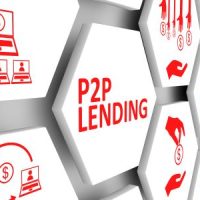Peer-to-Peer Lending

Interpersonal networks are an excellent source of emotional support and can also contribute to your financial wellbeing. “Buy nothing” clubs are gaining popularity in South Florida; participants exchange gently used household items at no charge. With a few friends and enough strategy, you can save a lot of money on groceries if each friend goes to a different store and buys several units of the items that are discounted at that store, and then you exchange them, so everyone goes home with a complete grocery haul. The only way that paying good deeds forward within your immediate friend group or your larger community does not work is when you need cash. If anyone you knew had enough money to lend, they would be able to afford to be jerks who didn’t share their bulk-purchased cereal or their gently used ice cream makers. Just as you can turn to Uber or Lyft when none of your friends can give you a ride, you can turn to peer-to-peer (P2P) lending when none of your friends can lend you money. Like any financial product, P2P is not a freebie. At best, P2P loans are a temporary solution to your debt problems. To discuss long-term solutions, contact a Jupiter debt lawyer.
How Are Peer-to-Peer Loans Different From Other Types of Loans?
In a P2P loan, the lender is an individual instead of a bank. People choose to lend money on a P2P basis as an investment, so that they will profit when the borrower pays back the loan with interest. Borrowers and lenders find each other on P2P lending websites, such as Lending Club, Prosper, and Upstart, in much the same way as drivers and passengers find each other on rideshare apps.
P2P lenders charge interest and fees, which tend to be comparable to the interest and fees that you would pay if you borrowed the money from a bank. They also require a minimum credit score, although P2P lenders tend to accept lower credit scores than a bank would accept for the same loan amount and the same interest rate.
Should You Choose Peer-to-Peer or BNPL?
Buy now pay later (BNPL) is a popular financial product for people whose credit scores do not allow them to qualify for bank loans. The fact that BNPL is interest-free when you repay it on time makes it an especially attractive option. The difference between BNPL and P2P loans is that BNPL enables you to make purchases, but it does not enable you to borrow cash. If you need cash, as opposed to just needing to make purchases, then P2P loans are a better choice than BNPL. It is possible to use money that you borrowed on a P2P basis to pay off BNPL debts.
Work With a Debt Lawyer About Borrowing With a Low Credit Score
A South Florida debt lawyer can help you strategize about rebuilding your credit and about accessing credit when your credit score is less than ideal. Contact Nowack & Olson, PLLC in Jupiter, Florida to discuss your case.
Source:
forbes.com/advisor/personal-loans/best-peer-to-peer-lending/
